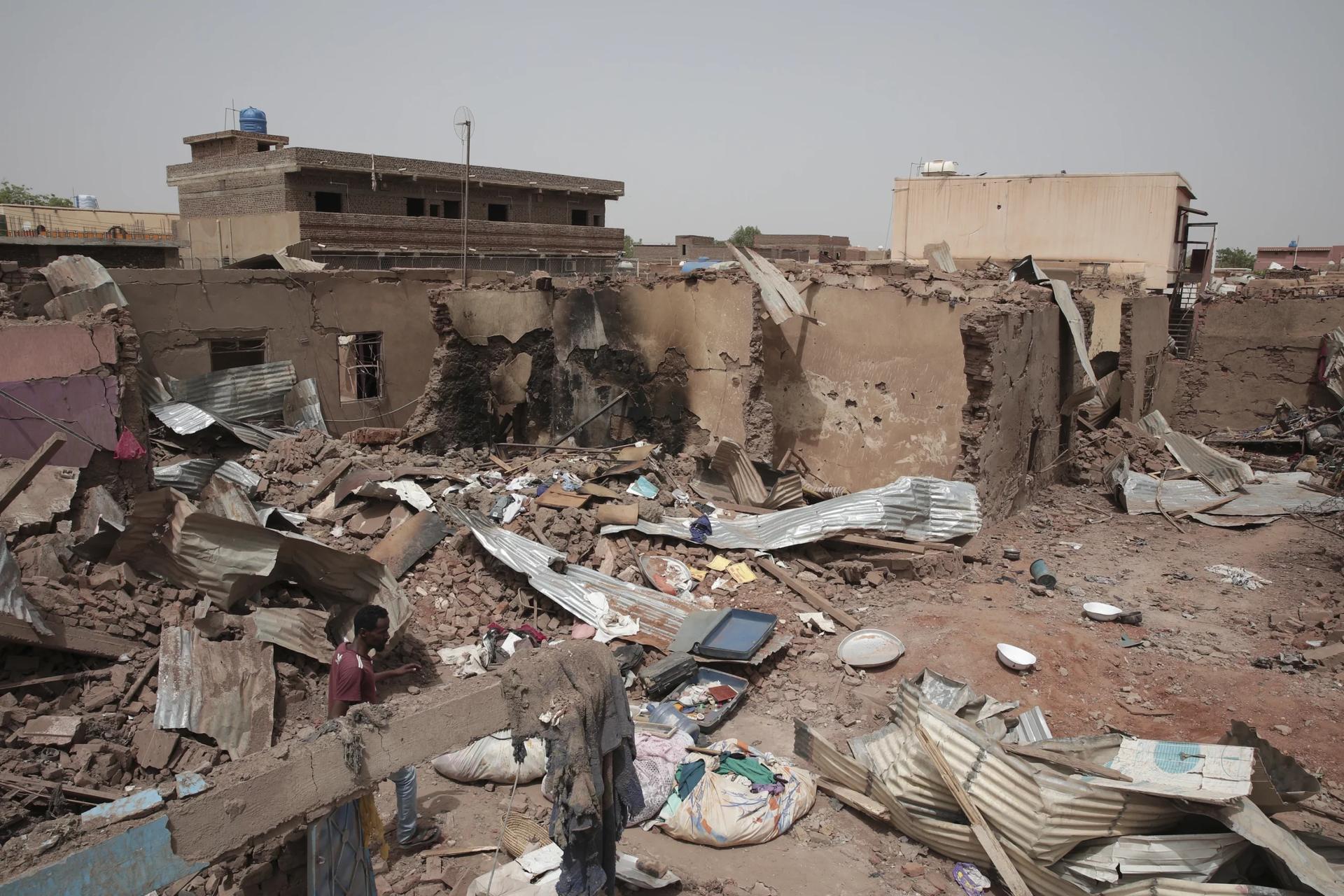YAOUNDÉ, Cameroon – Catholic bishops in Sudan and South Sudan say they are worried at the continued fighting in Sudan with “no chance for peace” due to lack of dialogue between the Sudan Armed Forces (SAF) and the Rapid Support Forces (RSF.)
In a statement shared with Crux on November 21, members of the Sudan and South Sudan Catholic Bishops’ Conference (SSS-CBC) said they were deeply worried at the worsening social and political situation in the country.
The SAF led by General Abdel Fattah al-Burhan and the very powerful paramilitary group RSF, led by General Mohamed Hamdan “Hemedti” Dagalo, went into conflict with each other over power and the control of state resources.
The conflict has left a trail of death and destruction, with a study by the London School of Hygiene and Tropical Medicine’s Sudan Research Group estimating that more than 60,000 people have died in the Khartoum region alone during the first 14 months of the war.
It has also triggered the displacement of over 11 million people, with about 2 million displaced Sudanese fleeing to unstable areas in neighboring countries like Chad, Ethiopia, and South Sudan. The UN says at least 25 million people need humanitarian assistance. Food security also continues to deteriorate in a country where the Norwegian Refugee Council estimates that more than half of the population – 25.6 million people – are experiencing crisis levels of hunger.
“The humanitarian consequence on the civilians has gone beyond toleration and must be condemned in the strongest terms possible,” the Catholic bishops said in their November 21 statement.
They urged the Sudanese people to “learn how to survive together, reject violence, and work for peace.”
The bishops implored the international community to take a leading role in efforts to prevent Sudan from disintegrating.
“We equally implore the neighboring countries, the Intergovernmental Authority on Development (IGAD), the African Union (AU) and the United Nations (UN) to prioritize their intervention to rescue Sudan from disintegration and restore peace,” they said.
That appeal may be falling on deaf ears. A Nov. 18 draft UN Security Council resolution calling for a ceasefire in Sudan was voted by 14 Security Council members except Russia. The Kremlin vetoed the resolution, arguing it included everyone else except the Sudanese themselves.
British Foreign Secretary David Lammy called the Russian veto “a disgrace.”
With no peace in sight, the bishops say ordinary people deserve humanitarian assistance, and urged the warring factions and their supporters “to respect humanitarian law and desist from blocking humanitarian corridors for lifesaving assistance.”
The bishops of Sudan and South Sudan also had concerns over developments in South Sudan – the country which broke away from Sudan in 2011 to become the world’s newest country.
The euphoria brought by independence petered out when fighting broke out between forces loyal to President Salva Kiir Mayardith and his Deputy Dr Riek Machar in December 2013.
Despite efforts to reconcile the parties involved in the initial armed conflict, more intense fighting broke out in July 2016, spreading to various parts of the country. This renewed conflict led to the emergence of multiple opposing forces and their allied militias, resulting in widespread inter-communal violence, explained Father John Gbemboyo, Social Communication Coordinator of the Sudan Catholic Bishops’ Conference, in comments to Crux.
He recalled that in 2018, a peace agreement was signed to resolve the conflict between all warring parties in South Sudan. The Agreement stipulated that South Sudanese citizens would vote in national elections in December 2024.
Unfortunately, the lack of political will to address critical issues — such as security arrangements, the unification of forces, the completion of a permanent constitution, and necessary governmental reforms — has led to the postponement of the elections to December 2026.
Gbemboyo said that the failure to implement the peace agreement has created a dangerous environment across the country, “marked by widespread insecurity, inter-communal fighting, and the ravaging of villages by armed groups.”
The economic situation remains dire, with high inflation and civil servants have gone ten months without salaries.
“The problem at the moment is economic,” said Bishop Eduardo Hiiboro Kussala of Tombura-Yambio diocese in comments to Crux.
“There is no money, and people have stayed for several months without salaries and this is really bearing heavily on the population who also has to deal with extremely high prices of everyday goods, particularly those imported,” he said.
Adding to the challenges, many parts of the country are suffering from natural calamities such as heavy rains and floods, which have destroyed villages, livestock, and farmland.
Moreover, the influx of returnees and refugees fleeing the war in Sudan has further strained the fragile economy. Most of the returnees are still struggling to meet their basic needs for livelihood.
Like in Sudan, the bishops have little hope for peace in South Sudan, given the difficulties in ensuring that democratic elections are held in the country.
“With the recurrent postponements of democratic elections in South Sudan, the hope for sustainable peace is waning,” the bishops said.
They urged the government of South Sudan and the opposition to expedite implementation of the 2018 Revitalized Agreement on the Resolution of the Conflict in the Republic of South Sudan (R-ARCSS) and the speedy conclusion of the expected 2024 Tumaini Consensus without further delay.
“We desire to see South Sudan transiting quickly from politicians-based power-sharing agreements to people-centered constitution promulgation, multiparty dialogue, and elections of government leaders,” they said.
“We plead with the international partners to continue supporting South Sudan to exit from humanitarian traps into a developmental nation-state, which values stability for prosperity,” the bishops said.














